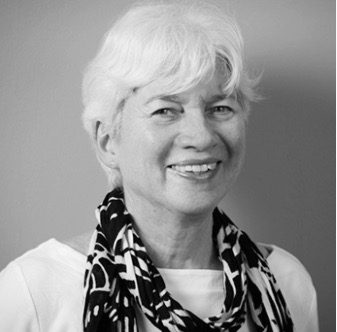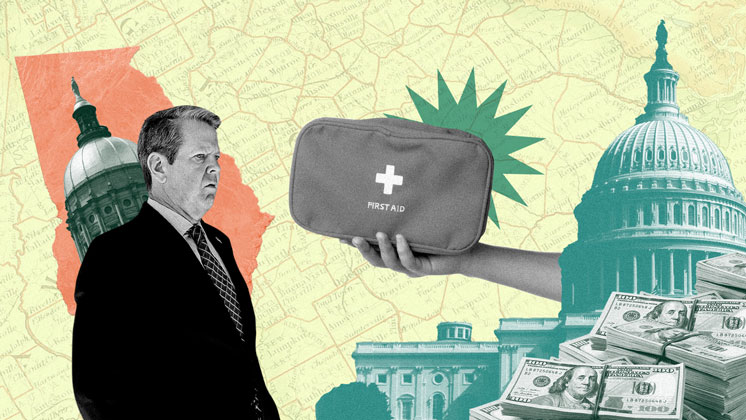Are the stars aligned to dramatically increase the number of low-income Georgia families who can qualify for affordable health insurance? Fourteen years after the passage of the Affordable Care Act (ACA), Georgia is one of only ten states that has not closed the coverage gap. Seven of these holdouts are clustered in the South. Georgia Republicans, who have controlled the legislature and governorship since the implementation of the ACA, have steadfastly advocated for its repeal and opposed its implementation at every turn. But cracks are beginning to appear in this opposition.
When the ACA was designed and implemented, it included a requirement that the states expand their Medicaid programs, the federally subsidized health insurance for low-income citizens, to include those who earn up to 138% of the federal poverty level. But in 2012, the U.S. Supreme Court ruled this expansion should be optional for states. This meant that in states such as Georgia, which decided not to expand Medicaid eligibility, many individuals earned too much to qualify for traditional Medicaid but made too little to qualify for subsidized health insurance through the ACA. Such individuals fell into what is called a coverage gap.
Before 2014, Georgia’s governor had the sole authority to eliminate the coverage gap. But, because the Democrat challenger that year, Jason Carter, was running a strong race against sitting Governor Nathan Deal, the legislature assumed this duty. Since that time, only Democrats, a lone Republican GA Senator, Chuck Hufstetler, and healthcare advocates have talked, over and over, about the advantages of expanding Medicaid.
This failure to expand Medicaid coverage has hurt the state in three significant ways: First, Georgia has foregone a more generous federal subsidy of Medicaid expenses for more than ten years. For the first three years of the ACA, the federal government paid 100% of the cost of expansion. Currently, the reimbursement rate is 90%, whereas the reimbursement rate Georgia receives for existing Medicaid patients is only 67%. Second, hospitals, particularly those in rural areas, are losing money when treating uninsured patients who cannot pay for services. More insured patients would significantly help hospitals’ finances. The third and most important is that low-income Georgians in the coverage gap will be able to afford better healthcare.
This year, there are rumblings among Republican legislators of an interest in closing the coverage gap. Last year, Gov. Kemp’s plan to expand Medicaid was launched. Called Pathways to Coverage, the plan offers Medicaid to a limited number of Georgians who are financially eligible and able to work or volunteer 80 hours per month. After being open for enrollment since July of last year, the program has enrolled a meager 2,344 out of an estimated 300,000 Georgians who might be eligible. The Pathways to Coverage appears to be an expensive pathway to nowhere.
At the same time that Pathways is having an anemic start-up, the state is also removing thousands from existing Medicaid rolls. The vast majority of these are children. During COVID, because of enhanced federal eligibility requirements, Medicaid enrollment in Georgia grew by about 40% to around 2.7 million Georgians. However, the COVID eligibility rule has ended, and large numbers of low-income Georgians are losing Medicaid coverage. If the decision could be made to close the coverage gap, many of these people likely could remain covered by Medicaid.
As Pathways was in its early months of operation this past fall, a House Study Committee was meeting to hear testimony on modernizing Georgia’s Certificate of Need (CON). This is a certification by the state that a proposed medical facility is necessary. Significantly, during the four hearings this committee held, several presenters advocated for closing the Medicaid coverage gap as the best and quickest way to help stabilize rural hospitals in danger of closing because of financial difficulties. Jimmy Lewis, CEO of HomeTown Health, pointed out to the study committee in its August meeting last year that cash is the biggest need of rural hospitals. “One of the simple ways to produce cash is to expand Medicaid. I understand all the politics associated with it. But the simple fact of the matter is if you could pick up 500,000 people or so for coverage… that’s one simple way to do it.”
Other Gold Dome leaders have been making expansion-like comments. Speaker of the House Jon Burns told an Atlanta Press Club gathering last year that “…we have some ideas in this space. And we’re going to work on them. We want to be new. We want to be innovative. I’m not sure that it’s as traditional as we think of Medicaid expansion. But I want to tell you the ground is always shifting when it comes to what government is involved in.”
Burns may have been coy at the Press Club event, but other GOP legislators have made statements indicating a willingness to look at coverage expansion options, including Lt. Gov. Burt Jones. But Jones’ interest comes with baggage. He has hinted that he would support Medicaid expansion if the state’s requirement for a certificate of need for hospitals is either reformed or totally eliminated. The reason? Jones’s father owns land in Butts County, which he wants to develop as a site for a new hospital, and qualifying for a CON may not be possible. SB 99 passed the Senate last year and is still alive in the House chamber. It provides for an exception to the CON requirement that neatly fits the Butts County potential hospital. It is unclear what this bill’s prospects are for this session in the House.
As evidence that Medicaid expansion may be coming, two seemingly unrelated things happened this past week. First, Senator David Lucas introduced a bill to eliminate certificate of need, saying that he was doing this because he wanted to see Medicaid expanded. It is unclear how SB 442 would address expansion since it is not mentioned in the bill. Also, late Friday, Gov. Kemp’s office announced that the governor is suing the Centers for Medicare and Medicaid Services (CMS) for delays in starting the Pathways program, intimating the delays may have contributed to the low enrollment.
If the Governor and legislature were to move forward with expansion, it is uncertain what path this might take. North Carolina, a state with a GOP-controlled legislature but a democratic governor, was the most recent hold-out state to expand Medicaid. It chose the standard expansion model but, in the process, made significant changes to its certificate of need regulations to garner support.
Another model that some Georgia GOP legislators have cited is from Arkansas; it designed a system that relies on private health insurers. The state gets a block grant from the federal government and uses that money to purchase health insurance from private companies that will have to meet the same ACA regulations for coverage. Arkansas was required to get permission, called a waiver, from the federal government, and Georgia would likely need a similar waiver if they decided to structure a similar expansion plan.
Rep. Michelle Au, an anesthesiologist, has been a strong advocate for closing the Medicaid coverage gap. She told the Peach that although she hasn’t seen a bill yet, she has certainly seen signs of interest. “The thing that concerns me is that the legislative session is only 40 days long. But I think that we have moved bigger bills in the past. So I think, generally speaking, the environment is that the Senate seems to have indicated that they are open to it. Most of the Republican leadership that has spoken publicly about this [issue] has indicated an openness to it. Governor Kemp has not spoken as explicitly on it, but he has had plenty of chances to explicitly say, ‘No, we are not doing Medicaid expansion,” and he has not done this. So I think that gives us an indication that he may want to see what the legislature comes up with, see what we passed, and then we’ll take a look at it, but he doesn’t want to weigh in early. It was a significant and sobering moment when the first Black man elected to the U.S. Senate from the state of Georgia addressed the Georgia Senate a few weeks ago. Senator Rev. Raphael Warnock has stepped into the role of “conscience of the Congress” that the late John Lewis filled. Speaking to the elected officials that day, his main message was the urgency of closing the coverage gap for low-income working Georgians by expanding Medicaid. He reminded the Senators that when the American Rescue Plan was passed, it included a bonus of $1.2 billion for Georgia if they closed the coverage gap through Medicaid expansion, in addition to receiving the enhanced 90% of the annual cost. “It’s just sitting there,” he said, to help everyday Georgians,” he finished before asking the Senators to join hands for a prayer. Indeed, the benefits are just sitting there, but maybe the state is ready to start realizing the benefits of expansion.

Krista Brewer
Krista Brewer is a native Atlantan who has a professional background in writing, reporting and editing. For several decades she has closely followed Georgia politics, focusing on topics such as healthcare, voting and immigrant rights, and budget and environmental issues. She is active on Twitter and invites readers to follow her @KristaRBrewer.

0 Comments